Abstract
This paper describes my final year design project. The project will be founded on several aspects that will try to make it unique and high end. The project is founded on John Fowles book, “The collector”, and how various factors in the book interact. The project draws upon the Pre-Raphaelite art concept and that of toaster collection. Both of these aspects are within the book and will help define the structure of the collection. The project with a focus on high-end fashion design targeted for the confident and social Muslim woman who intends to express her identity in her clothes.
Introduction
People collect things for a variety of reasons. Some people collect art due to the desire to possess, control or even bring order to a small part of the world. Some people collect art and other things due to nostalgia while others simply collect items as a means of connecting to history, learning or knowledge. For my final project, I undertook to show my identity rather than juxtaposing my character to a piece of collectables.
In order to develop my collection, I drew inspiration from John Fowles’s book, The Collector. Fowles (1963) portrayal of the two main characters as two very different and distinct individuals but whose interaction resulted in a beautiful work of literature serves as my main starting point. In Fowles ‘the Collector’, a young, lonely and uneducated man, Fredrick, Is obsessively interested in a young artist Miranda. Fredrick has a passion for collecting butterflies and photography. He collects butterfly in order to capture their beauty and always wished he could capture them while living.
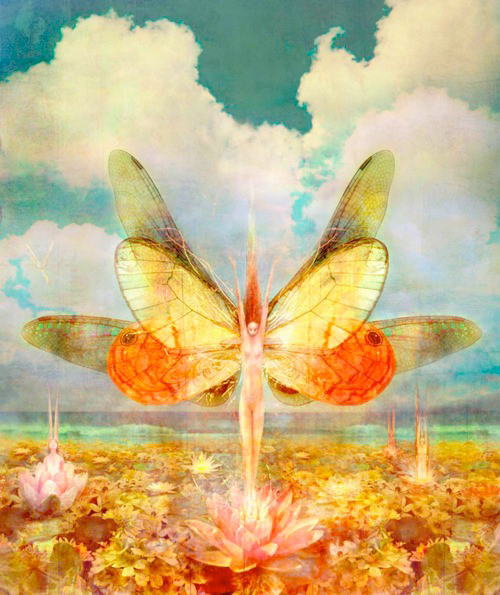
He decides to add Miranda to his collection and kidnaps her, locking her in the cellar of his house. The novel focuses on tho main characters that contest each other, that is the guard and the prisoner. It is very interesting to watch the events developing between both of them. They both have different points of view and take life in different ways that make them be contestants in the novel.
The main plot can be considered as a struggle between hope and mockery what can not be compared at all. Frederick strongly believes in Miranda to find time for him as she knows how much he loves her and how much she loves him as well. Fredrick knows that every time they meet, their love may go stronger and can never be finished. Unfortunately, Miranda thinks that Fredrick is full of delusions and that he does not know what he says.
He believes what he has created himself, and nothing else for him matters. Nevertheless, Miranda thinks that due to the origin of a high-class family, she can still get rid of Fredrick in all possible ways. It becomes her main thought.
This story is the foundation on which the concept of this project is based. Fredrick obsession of collection will be represented by toasters collection that will be used in the project.
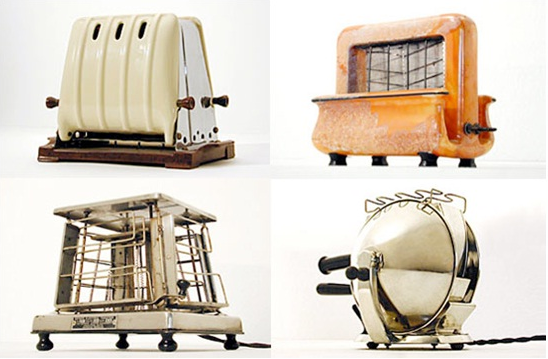
Manufacturer: Landers, Frary & Clark Brand Name: Universal Model Number: E945 Toaster type: Pincher.
This elegant, spring-loaded pincher toaster is from late 1900. The incorporated toast rack adds to it a striking appearance.
Miranda’s love of art will be represented by the Pre-Raphaelite art concept used in the project. Her strong character shapes the structure of the collection. Her captivity and the need to escape will determine the target of the collection as I intend to portray Muslim women who have to show their identity and to hold on to their beliefs without eliciting prejudice.
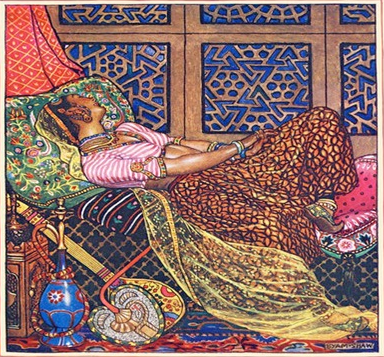
I plan to create a collection indulged with rich, innovative paints, enlightened with Muslim ethical beauty and modern American elite silhouette. For my project, I have decided to concentrate on Pre-Raphaelite art and draw inspiration from various works of this era.
Rationale
The pre-Raphaelite artist considered themselves a reform movement within the art community. They sought to rebuff the mechanistic approach that existed during their time and tried to instil elegance and class in their work (Andres, 2005). For my project, I was inspired by 1909-1960’s toaster collection that I once saw in a collector’s magazine. Toaster collections emanate aesthetic looks and the variety of toasters, from rusty to shiny, captivated me with all the history and idiosyncratic style that produces a positive kitsch effect.
Apart from the toasters collection, the works of various Pre-Raphaelites have also inspired me in this project. Of particular interest are the various works of Dante Gabrielle Rossetti. Rossetti’s works have a vivid colour shade that evokes romanticism and gives his work a strong character. His portraits are a prime example of academically perfect beauty.
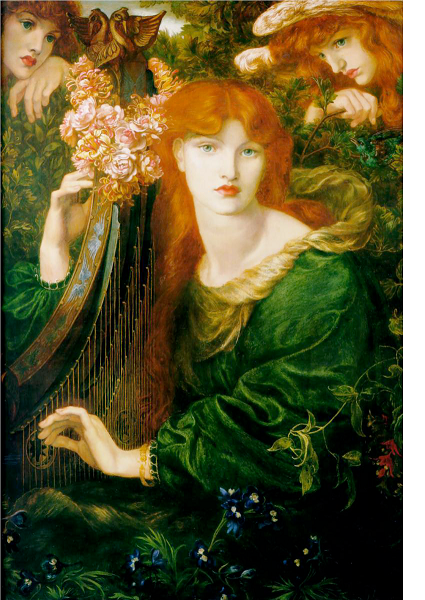
Dante Rossetti was an artist capable of expressing romantic beauty, and his colour palette was able to exude a fragile female essence to his work. In this paper, Fowles art student Miranda, collector Fredrick together with Rossetti and vintage toaster collections have been the foundation in which my concept is built upon.
Fredrick one moans how he hates those who are ignorant and uneducated, Pompous and bogus, those who are petty, mean and the crabbed. He finishes by noting that he also hates all ordinary dull people who are not aware that they are both ordinary and dull (Fowles, 1963). Fredrick was an eccentric and an avid collector. I, therefore, decided to design for Fredrick and develop my research towards the strange and unusual collectables.
I decided to develop a project that can captivate and excite due to its unusual nature and its divergence from the mainstream collectables. Toasters are objects that people see every day in their houses but which they seldom think as art. Considering Fredrick’s feelings for the ignorant and uneducated, the ordinary and dull, I believe that the charm and rustic aesthetic value of the toaster collection can best connect with him.
Collections have the ability to merge the past and the present (Allum, 2006). For a long time, people have collected different things such as butterflies, stamps, postcards, keys, currencies, coins etc. While these mainstream collectables can prove valuable for my project, they are not as innovative as toasters or fish tickle. In the common modern age, people have turned into collecting a variety of bizarre and peculiar items which I find both inspiring and creative. According to Townsend (1996), the toaster has a differential uniqueness from other home appliances which mainly results from its design. I believe that the major reason behind the toaster’s marketing campaign and the reason it became a popular collectable was its quirky, cute designs.
For my collection, I have chosen to draw inspiration from the captivity of Miranda in The Collector and from Fredrick’s love of the unusual and exciting. Pre-Raphaelite art and toaster collection will also be heavily ingrained in my collection. The next section describes the extraction of ideas for my project.
Detail
The toasters will be used for prints in this collection. After analysing details of some of the beautiful and compelling toaster designs, I intend to take apart the shapes and details and use new romanticism floral and background prints. My collection concept is structured around the toaster theme; hence rust and metal will be utilized to give a sense to the collection when choosing plain fabrics. Metal grill wire and detail motifs of toasters resembled ironwork will later be used in print. In order to bring out romanticism and the over identity to the collection, fine Turkish needlework will be used.
An important aspect of the collection is the use of Pre-Raphaelite symbolism. Pre-Raphaelites were able to bring out romanticism through the use of nature and natural elements using vivid colours in their work. I, therefore, intend to use roses as a pre-Raphaelite symbol. I intend to use shape and folding textures to give detail to the rose. The Turkish needlework used could also be given a rose shape in order to embellish the collection. The headscarves can be wrapped in the form of a rose in order to bring out the overall theme and structure of the collection.
Silhouette
The silhouette of a piece of clothing describes the outline shape that it provides when worn (Welters, 2011). The silhouette is developed by the cut of the clothing, texture and dimension of the clothing etc. To develop a silhouette for this collection, the toaster’s timeline was used to pick the period of the silhouette. The silhouette was first developed by linking traditional eastern dress styles and the elegant outfit western styles from the 1940-50s to shape and heavy prints. Although the western style time period chosen can be considered too broad, I chose those styles that had similar looks to the eastern style.
In my research, I found out that despite different cultural views, some western styles in this period had similar aspects to eastern styles. Although the silhouette will be fluid, lit up with adroit layering and harem pants, it’s clean-cut structured outwears with all over will have prints and needlework embellished. For my project, I am looking for strong and sophisticated looks. The elite clean, neat western look will be the Silhouette and details will be transferred to the outfits straight away.
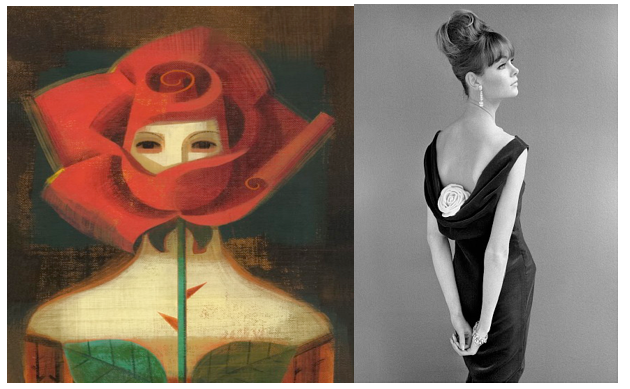
Fabric and Paint
This project is about class and sophistication and therefore high-quality wool and silk crepe for outfits and gabardine and fake sheepskin for outerwear will be the fabrics of choice. For the print, the material of choice will be silk chiffon and silk crepe. Since several eastern concepts will be included in the concept, Turkish fine needleworks (Oya) will be used after a modern makeover. I intend to utilize sophisticated colours for both of my primary sources.
As a prominent theme will be the toaster collection, I intend to use some rusty colours and metallic paints to invoke this theme. In order to fit with the Pre-Raphaelite concept, I might dye the fine needlework with fresh colours to bring the collection to life. Oya could be used to make the flowers that will best embellish the collection.
Consumer Profile
My consumer is a very sophisticated and busy Muslim woman between 25 and 35. She has a strong personality and lives in a conservative high class area in Turkey. She is a woman who has a passion for knowledge and creativity and hence spends most of her time in seminars and conferences apart from the usual family dinners and gatherings. Although religion is a major aspect in her life, she loves socializing with other people.
She is loves clothes that are exquisite, high quality and innovative while complementing her Islamic identity. Although she is wealthy, she is not a shopaholic or ostentatious. She loves colours and prints but however she avoids them for outerwear and leaves them for outfits. She loves comfortable and functional femininity without any sexuality or showing off. She is passionate about authentic places and one of her favourite activities involves going out with a friend for a discovery, exploring exhibitions, museums, shops, skills, streets, cafes etc. to nourish her soul. She uses her clothes as a means to communicate about herself mainly because of the prejudices people have about the Islamic community.
After republication in 1923, Turkey relaxed its strict rules on clothing (especially for women) and nowadays most working class individuals regard the Hijab as something worn by uneducated farmers. She therefore has to find a way to say that she is well educated, great taste in art and fashion, while preserving her Islamic identity.
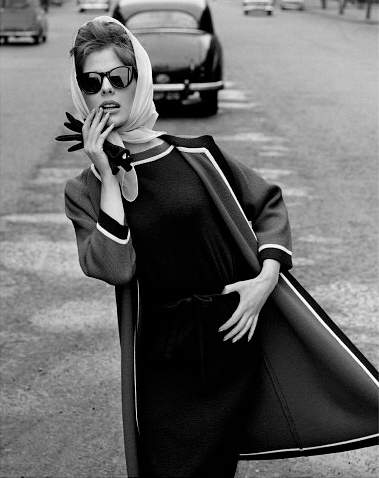
Market Level Competitors
My collection will be on the high end of the ready to wear designer market. The collection will target small designer boutiques so as to access as many targeted consumers as possible. Over time, various companies have developed and dominated the apparel industry. My competitors are therefore listed below.
Calvin Klein
Calvin Klein is a luxury fashion house opened in 1968 in America by a fashion designer of the same name. The company produces clothing, fashion accessories and perfumes under the CK logo. The company has various deals with many small department stores in the United States as well as high end stores dealing with High End designer clothing (Welters, 2011).
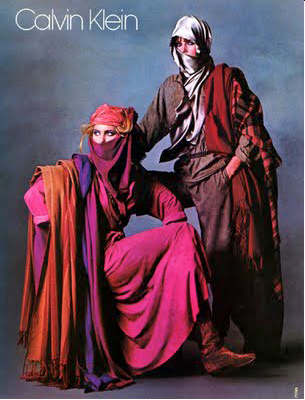
Christian Dior
Christian Dior is a French company that also operates in the United States. It was started by the designer of the same name in 1946. The company mainly deals with Haute Couture aimed at the high end market. The company operates about 160 boutiques in various parts of the world and has over 76, 000 employees as of 2010. In 2010, the company had a net profit of €1.261 billion, an operating income of £4.142 billion and assets worth over £41.20 billion (Nielson, 2011).
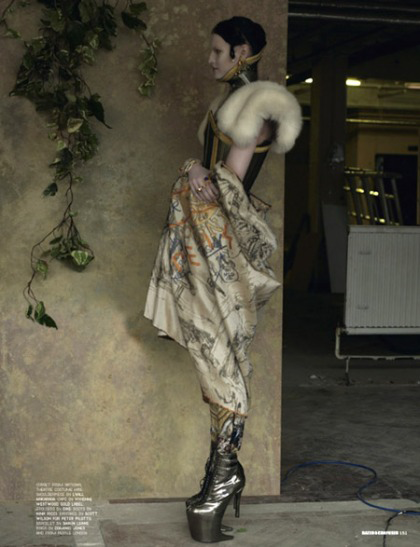
Chanel
Chanel is a French fashion house founded in 1909 by the French couturier Gabrielle Chanel. The company deals with Haute Couture, perfumes, hand bags and other fashion accessories. The company went after elegance and turned away from “sexy”. The company has about 1,270 employees and very few stores worldwide. In 2010, the company had revenue of £1.809 billion with a net income of £280.3 million (Nielson, 2011)
Hermes
This is also a high-end fashion house originating in France. The company specializes in leather, perfume, handbags and ready-to-wear items. The company was founded in 1837 by Thierry Hermes. In 2010, the company had total revenue of £2.401 billion, a net income of £421.7 million and assets worth £2.919 billion. The company has over 8000 employees in different parts of the world (Nielson, 2011).
Louis Vuitton
It is also a French fashion house that also operates in most parts of the world. It was founded in 1854 by a designer of the same name. The company produces ready-to-wear, shoes, hand bags, luxury trunks, jewellery and leather goods. The company markets its products through high-end retail stores, boutiques and the internet. In 2010 the company had total revenue of over £2.1 billion (Louis Vuitton, 2011).
Methodology
My concept combines my two big loves of antique collecting and painting. Apart from this, my love for reading will also supplement and support my overall concept. Of particular significance to this project is Fowles’s book “collector” as it provides the fundamental nature in which my concept is structured. “Collecting is keeping new until it is old” there is an irony that oppositions complete themselves in each other’s meanings. This concept was a starting point in my research. Pre-Raphaelism was another inspiration which fits with Miranda’s artistic character and academic beauty.
This project will mainly involve art reviews and drawing from this art to develop a compelling collection. My project takes from both “the collector”, a book by Fowles and from various Pre-Raphaelite art pieces. This project will mainly draw from Rossetti’s work as his work was characterized by sensuality that is perfect for my intended project. The use of natural elements and vivid colours will need ample understanding of Pre-Raphaelite art. It is important to understand how colours were used to provide a desired outcome and how to integrate natural elements to art. This project will try to mimic this art movement as close as possible and also integrate other concept to this. Apart from Rossetti, other Pre-Raphaelites will also be used in this collection.
According to Sissons (2010), market research is usually the first important step that should be taken by any designer. This will help one to understand the consumers of a particular design, instances where similar works have been applied and their reception in the market and whether there is a growing market that will adopt the collection. It is also important to understand consumer behaviour and why a particular trend is preferred over another.
Following this, one of the methodologies I intend to utilize will be shop and trade visits. I intend to visit various department stores and high end fashion retailers to gather information. During this visits, various aspects connected to the project will be collected. First, I intend to collect information concerning the knit quality of various prominent high end fashion designers and the finish that they employ.
Next, embellishing trends that are in season will be considered with a special consideration of the concept of this project. The existing colour mood will also be investigated and its persistence in stores will also be closely looked at. Finally, the price point of the goods common in the retail shops will be investigated and recorded.
Sissons (2010) argues that many collections are based on a narrative theme. The theme conveys a particular mood as intended by the designer and also tells a story. According to Sissons (2010), a designer should always use a subject in which he is personally interested in and one that can be able to inspire ideas as well as provide a visual impact to the ultimate work. For this project, my theme will be based on John Fowles literary piece “The Collector”.
In his work, Fowles (1963) presents a story of a deranged young man Fredrick Clegg and a beautiful art student Miranda Grey. In the story, Fredrick is a butterfly collector and has an obsession with Miranda Grey. In the story, he later kidnaps Miranda and locks her up in the cellar of his house. It is later revealed that Miranda is a middle class art student with a lot of class, a love of art and humanities and a woman of strong character.
Drawing from the Collector, I have developed all the elements of my collection. Fredrick obsession of collection will be represented by toasters collection that will be used in the project. Miranda’s love of art will be represented by the Pre-Raphaelite art concept used in the project and her strong character will shape the structure of the collection. Her captivity and the need to escape will determine the target of the collection as I intend to target Muslim women who have to show their identity and hold on to their beliefs without eliciting prejudice.
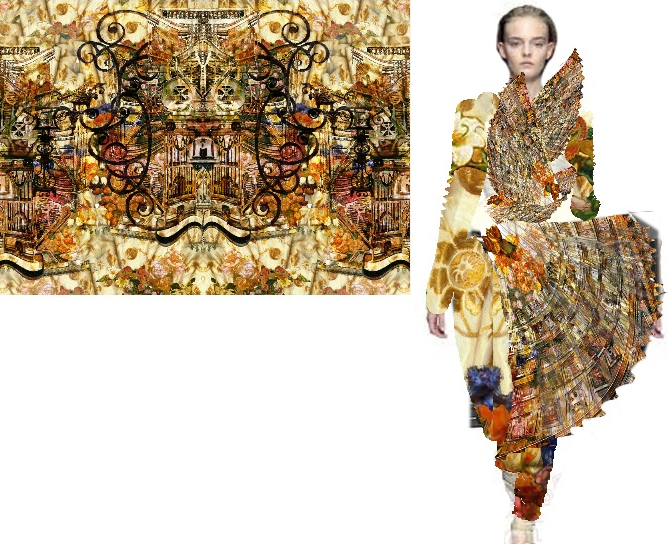
My project will also use internet review in order to draw inspiration from works of art available on line. As noted earlier, this project intends to use Pre-Raphaelite works of art as well as unique toasters to develop a collection. Many works of art can be retrieved from the internet. It is also possible to understand the history behind toasters and how they have changed over the years. My project is interested in a specific time period and therefore the internet is mainly the most efficient means of accessing this information.
Critical Path
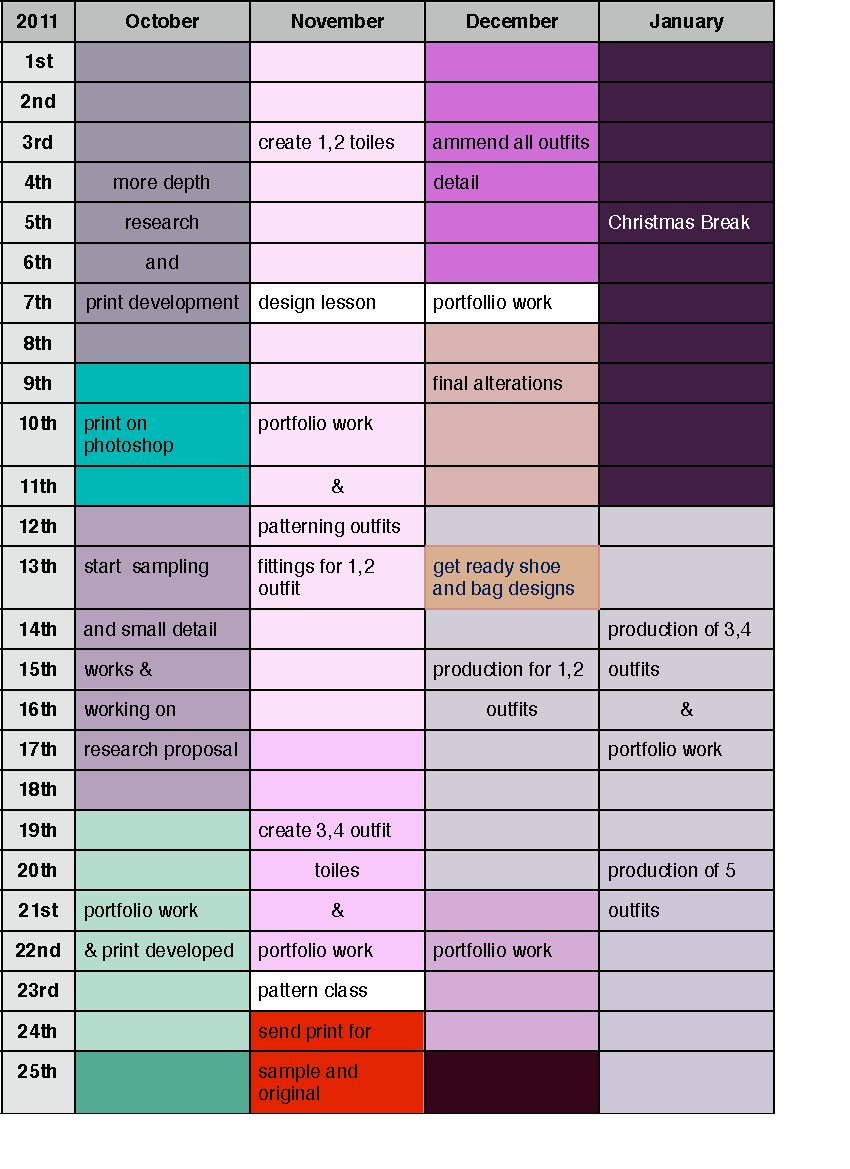
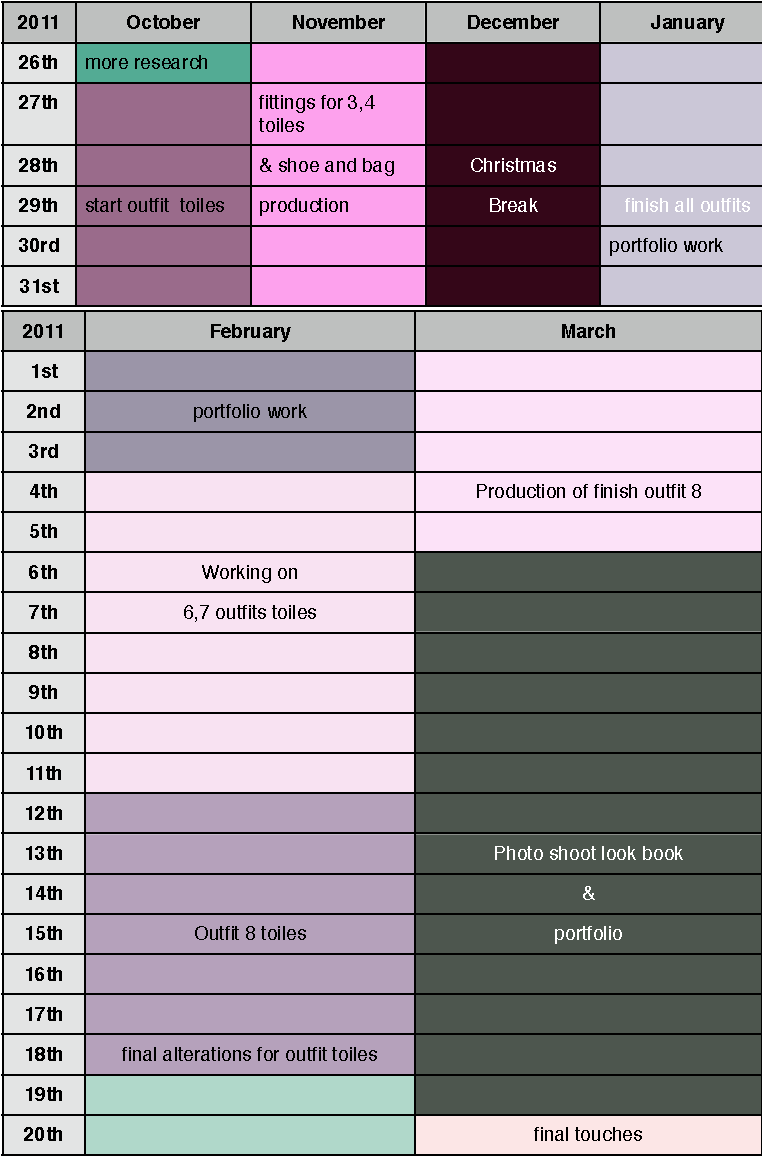
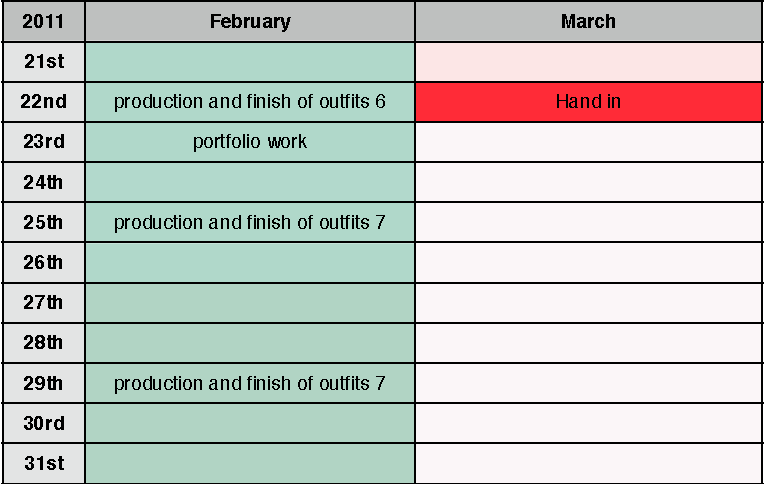
References
Allum, M., 2006. Collecting. London: Teach Yourself.
Andres, S., 2005. The Pre-Raphaelite Art of the Victorian Novel: Narrative Challenges to Visual Gendered Boundaries. Ohio: Ohio State University Press.
Fowles, J. 1963. The Collector. New York: Back Bay Books Sisson, J. Basic Fashion Design: Knitwear. New York: AVA Publishing.
Townsend, A. 1996. Toasters 1909-1960: A Look at the Ingenuity and Design of Toaster Makers. Fishpond, Australia: Schiffer Publishing Ltd.
Welters, L. 2011. The Fashion Reader. New York: Berg Publishers.